To help you get started on the right foot, it’s essential to familiarize yourself with the various aspects of travel trailer camping. From choosing the perfect travel trailer, to preparing for departure, mastering driving and towing, understanding campsite setup, maintaining your trailer, and learning about camping etiquette, there’s a wealth of knowledge to be gained. By educating yourself, you’ll be ready to make the most out of every camping adventure.
Key Takeaways
- Select a suitable travel trailer, considering your needs and preferences.
- Master the basics of driving, towing, and campsite setup for a smoother experience.
- Learn about regular maintenance, troubleshooting, and camping etiquette for a hassle-free trip.
Choosing the Right Travel Trailer
Understanding Trailer Weight and Towing Capacity
When considering a travel trailer, it’s crucial to understand the trailer weight and your tow vehicle’s capacity. Towing a trailer that’s too heavy for your truck can lead to accidents, vehicle damage, or poor handling on the road. Start by checking the specifications of your tow vehicle, including its gross vehicle weight rating (GVWR), which determines the maximum weight your vehicle can safely tow.
Knowing the travel trailer’s weight is essential too. Dry weight refers to the trailer weight without cargo, fluids, and passengers, while Gross Trailer Weight (GTW) includes the total weight when fully loaded. Also, remember to account for the weight distribution in your calculation of the total weight.
Assessing Size and Layout Preferences
Beyond towing capacity and weight, consider your preferences for travel trailer size and layout. Think about what aspects are important to you, such as the number of beds, storage options, and kitchen amenities. This decision also influences your towing experience: smaller trailers are easier to tow and maneuver, while larger ones can provide more living space and amenities.
To pick the most suitable travel trailer, research different RV brands and designs. For instance, Winnebago and Grand Design are known for their quality RV travel trailers, and comparing brands like Lance and Arctic Fox, or Airstream and Lance can also be beneficial.
It’s essential to visit dealerships or RV shows, allowing you to experience the size, layout, and features yourself. Lastly, remember that your needs may evolve over time, so consider a travel trailer that will accommodate future changes.
If you’re buying your first RV, prepare a list of questions to ask during the purchase process, ensuring it meets all your requirements. To make an informed decision, spend time understanding the different RV classes available, which can help you determine the right type and size of travel trailer.
Remember, choosing the right travel trailer is a critical step in enjoying a smooth and comfortable camping experience. Consider trailer weight, towing capacity, and your preferences for size and layout before making a purchase.
Pre-Departure Preparations
Conducting Thorough Research on Campgrounds
Before embarking on a travel trailer camping adventure, I always conduct thorough research on potential campgrounds. I look for information on available amenities such as electricity and water, and making sure they are suitable for my needs. Campgrounds often have varying levels of resources, so knowing how long my water supply will last is essential. I check each campground’s website, reviews, and reach out to the management if needed.
Ensuring Your Tow Vehicle Is Fit for the Job
When preparing for my travel trailer camping trips, the safety and stability of my tow vehicle is a top priority. That’s why I make it a habit to perform essential checks to ensure it’s in tip-top condition. Here’s my checklist:
- Tires: I examine the tires for wear, proper inflation, and alignment. Faulty tires can cause swaying and create a dangerous drive.
- Brakes: I make sure my brakes are in good condition as sudden stops or sharp turns can put added strain on the vehicle when towing a travel trailer.
- Mirrors: Having properly adjusted mirrors is crucial for visibility. I also invest in towing mirrors that provide an extended view of my trailer.
- Electrical: To ensure a seamless connection between the tow vehicle and travel trailer, I check that all electrical systems are functioning, including tail lights and turn signals.
- Brake controller: An essential component for safe travel, I verify that my brake controller is working well and properly synced with my tow vehicle and travel trailer.
By taking care of these pre-departure preparations, I set myself up for enjoyable and stress-free travel trailer camping experiences. Through diligent research, understanding my water and electricity needs, and ensuring my tow vehicle is in excellent condition, I can confidently embark on my adventurous journeys.
Mastering Driving and Towing
Practicing Safe Driving Techniques
When I tow a travel trailer, my main focus is on practicing safe driving techniques to ensure a smooth and enjoyable camping experience. One of the most important aspects of safe driving is proper preparation, such as conducting a pre-trip inspection and making sure my towing setup is properly configured. This includes checking the hitch, brakes, safety chains, and lights.
As I drive, I’m mindful of my speed and maintain a steady pace, adhering to relevant speed limits. I avoid making sudden lane changes and sharp turns, as these can cause instability or even an accident. Additionally, I increase my following distance to allow for more time to react to traffic conditions and make safe stops.
One key aspect of driving while towing an RV is understanding how to use my brakes effectively. Instead of applying constant pressure on the brakes, I use a technique called “pulse braking.” This method involves tapping the brakes in a rhythmic manner, allowing for better control and reducing the risk of overheating.
Understanding and Preventing Trailer Sway
As a travel trailer camper, one of the significant challenges I face on the road is trailer sway. Trailer sway can be caused by a variety of factors, including improper weight distribution, strong winds, or sudden changes in direction. To minimize trailer sway, I ensure that my trailer’s load is properly balanced with heavier items placed low and towards the front of the RV. Additionally, I make sure to use a suitable sway control hitch.
While driving, I am always aware of my surroundings and weather conditions to anticipate potential sway-causing factors. For example, if I notice strong winds or the potential for gusts, I reduce my speed accordingly and keep a firm grip on the wheel. In case of sudden sway, I avoid slamming on the brakes, as this can worsen the situation. Instead, I gently apply pressure to the trailer’s manual brake controller while maintaining a steady speed, allowing the sway to correct itself gradually.
By combining both safe driving techniques and a thorough understanding of trailer sway prevention, I can confidently tow my travel trailer and fully enjoy the camping experience.
Setting Up at the Campsite
When arriving at a campground, the first thing I always do is navigate to my assigned spot.
Navigating to Your Assigned Spot
Upon checking in at the campground’s reception, I receive information about my site location and any specific rules I need to follow, such as guidelines related to dogs or maintaining a quiet environment for neighbors. It’s essential to adhere to these rules and respect the personal space of fellow campers.
Once I have my assigned spot, I carefully drive my RV to the location, making sure to maneuver slowly and cautiously. If the campground provides any maps or directions, I follow them diligently. In some cases, my campground neighbors might have helpful advice regarding the best way to park or back into my site.
Connecting to Campground Amenities
After I have safely parked my RV, it’s time to connect to the campground amenities, which usually include electric, water, and sewer hookups. Having the right tools and equipment can streamline this process and make it more manageable.
- Electric hookup: I start by plugging my RV’s power cord into the campsite’s electrical outlet. It’s important to verify the voltage compatibility to avoid damage to the RV.
- Water hookup: Connecting my RV to the campsite’s water supply involves attaching my drinking water hose to the campground spigot and then to my RV’s freshwater inlet.
- Sewer hookup: I prepare my sewer hose, connect one end to my RV’s sewer outlet, and the other end to the campground’s sewer inlet. This step helps in managing wastewater during my stay. Properly connecting the hose is essential to prevent leaks or spills. Handling any common issues with precaution can save potential troubles.
Once connected, I usually inspect my RV’s awnings, leveling systems, and any other exterior features, such as elevated RV showers, to ensure they function properly. Finally, I set up any outdoor furniture or recreational equipment to enjoy my stay at the campsite.
By following these steps and being mindful of my surroundings, I ensure a smooth and stress-free setup at the campsite, allowing me to fully appreciate the beauty of the outdoors during my travel trailer camping experience.
Maintenance and Troubleshooting
Regular Cleaning and Maintenance Tasks
One of the essential aspects of maintaining your travel trailer is keeping it clean. I make sure to regularly clean the interior, including the kitchen, bathroom, and living areas. A crucial maintenance task is to lubricate components like door hinges and RV awnings. Using the best lubricant for RV door hinges and safe & effective lubricants for awnings can ensure their smooth operation.
I also pay attention to RV slide-outs, as they significantly enhance the living space inside the trailer. Proper maintenance with the best RV slide-out lubricant is essential for a smooth transition and longevity.
Handling Common Road and Campsite Issues
Traveling with a travel trailer can lead to various road and campsite issues that require troubleshooting and repairs. Suppose I experience issues like no water pressure in the RV kitchen sink. I follow tips and guidelines provided to fix it and avoid letting it negatively impact my camping experience.
Additionally, I keep a close eye on the gray tank levels. An unbalanced tank may lead to issues like blowouts while RVing. Some common problems that I, as well as other RVers, may face include:
- Weight distribution: Ensuring proper weight distribution in the travel trailer helps prevent issues during road trips.
- Storage: Organizing storage areas in the travel trailer is essential to avoid overloading it with unnecessary weight.
- Big Rig Handling: Driving a large travel trailer can be challenging, and I stay cautious while maneuvering tight spaces and turns.
Dealing with common road and campsite issues, combined with regular cleaning and maintenance, contributes significantly to a smooth travel trailer camping experience.
Camping Etiquette and Community
Being a Good Neighbor and Steward of the Environment
One of the most important aspects of camping in RV parks and state parks is being a good neighbor and steward of the environment. For me, this means being respectful to my fellow campers, who might be experienced RVers or just trying out a new travel trailer. I make sure to keep noise levels down, especially during designated quiet hours, which are usually from 10 p.m. to 8 a.m.
I also take environmentally friendly actions, such as picking up my own trash and disposing of it properly. This helps maintain the natural beauty of campgrounds and preserves the environment for future generations of campers.
Interacting with Other RVers
Interacting with other RVers is an essential part of the camping community. Some RV parks organize group events, such as potlucks or game nights, which provide a great opportunity to meet fellow travelers and share experiences. When attending these events, I always make sure to be polite and considerate to my neighbors.
Engaging in conversations about different RV brands and models can also be helpful for any RV newbies who might be curious about a particular manufacturer or looking to make a purchase. I try to provide honest and helpful feedback, as well as any tips or tricks I’ve learned from my own experiences.
Lastly, if someone needs help with their RV, whether it’s a minor issue like a flat tire or a more significant problem like a broken down engine, I always try to lend a helping hand if I’m able. Offering assistance not only strengthens the RV community but can also provide me with new friends and valuable experiences.
In summary, camping is more than just setting up a travel trailer. It’s about embracing a lifestyle that values respect for the environment, our neighbors, and the broader RV community. By keeping these principles in mind, I not only contribute to a positive camping experience for myself but also for those around me.


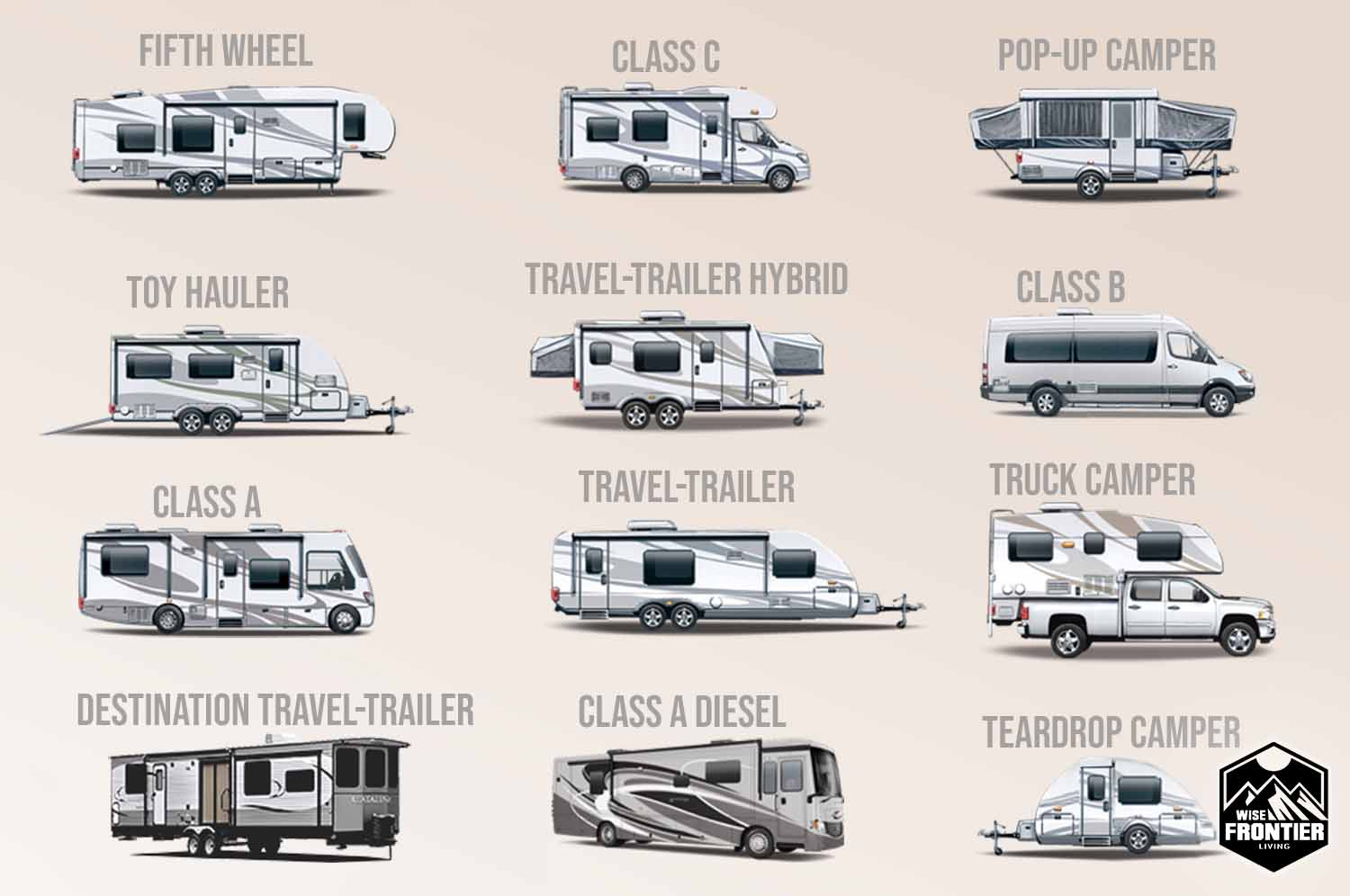
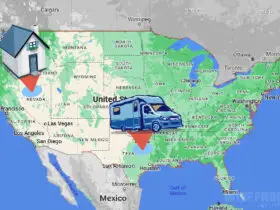
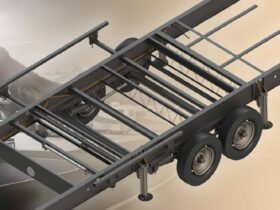
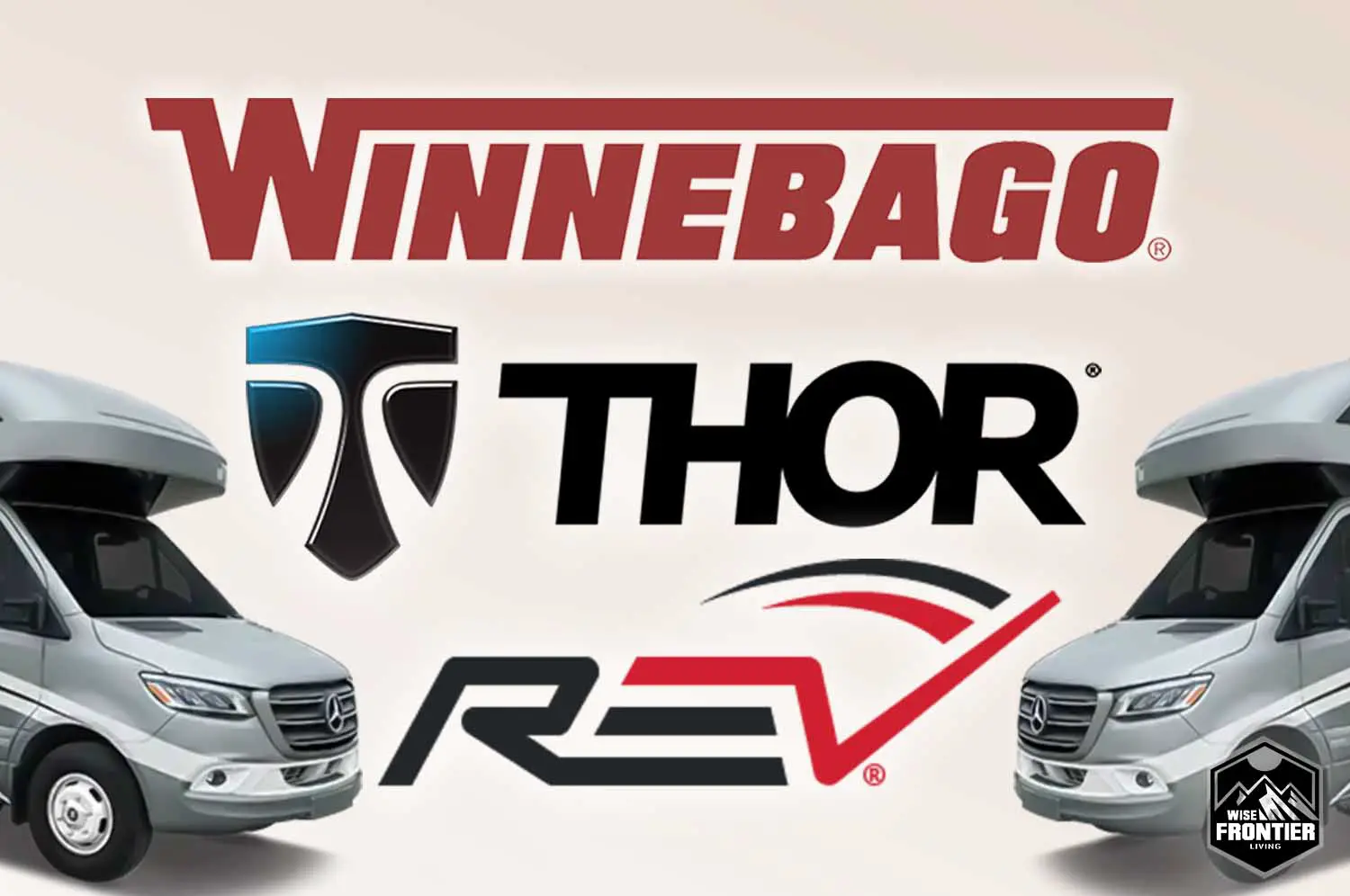
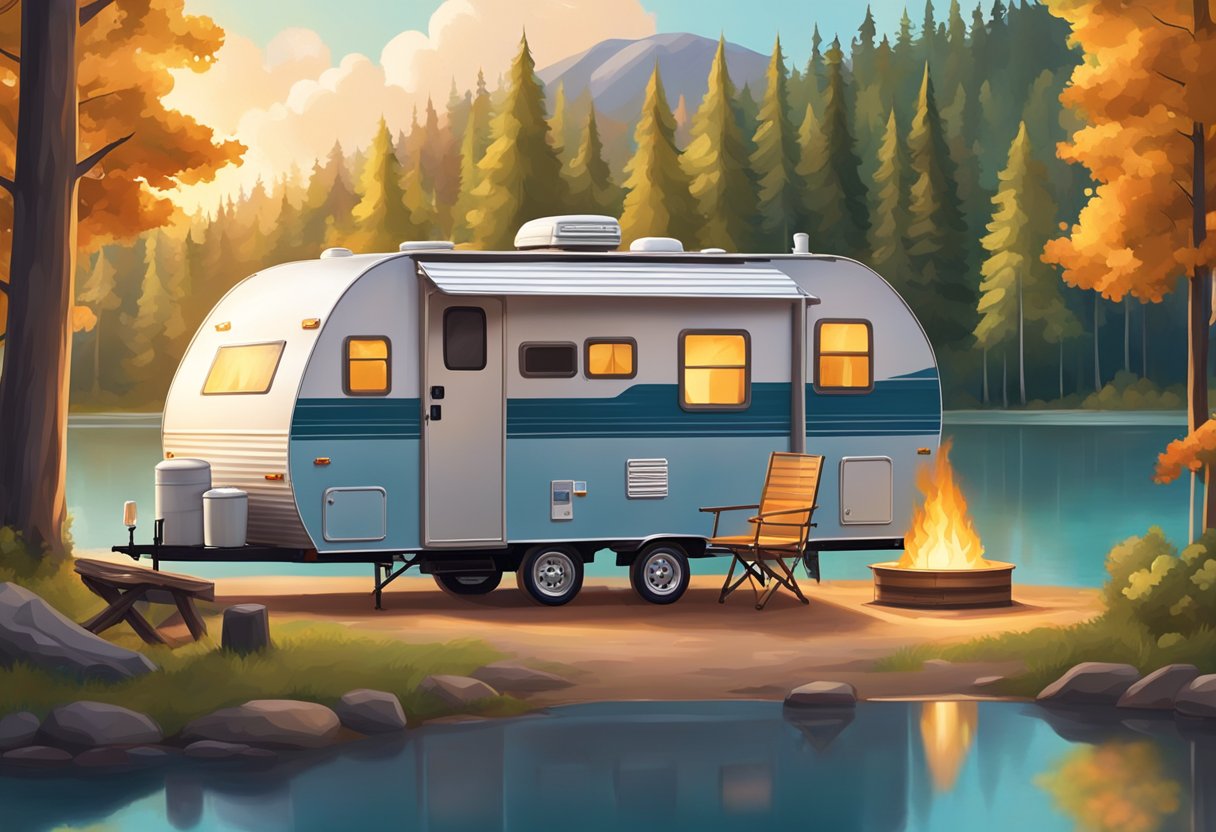
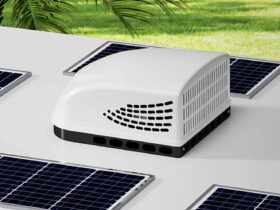
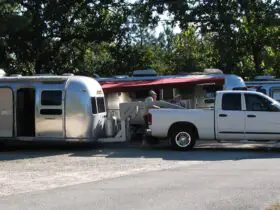
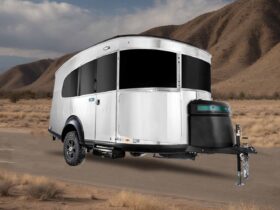

Leave a Reply